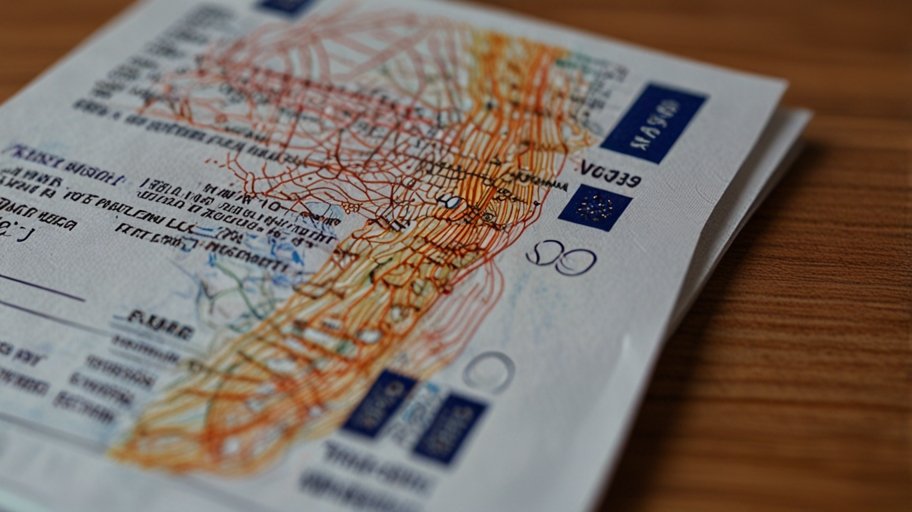It is the question that has gained more attention as new travel regulations are in the process of being put into effect in 2025: Do Australians need a visa for Europe. Australian citizens who are traveling to Europe for short stays will now require permission to apply for the European Travel Information and Authorisation System, abbreviated as ETIAS. This is given to them upon their request and is similar to the ESTA, which is the American traveling permit.
The ETIAS is a document that all people who are not from the EU have to show, primarily in the Schengen Area. This land is made up of 30 special countries in Europe where the residents and people who belong to the visa-waiver states can travel without a visa.
Australians have the opportunity to visit the Schengen Area and they can stay there for the duration of 90 days and even more as long as the total number of days does not exceed 90 days in the 180-day period.
Such visits can be for various reasons, such as tourism, business, or transit. However, it should be noted that ETIAS itself is not a visa, it is just another layer of travel authorization to increase the control and safety within the borders of the European Union.
ETIAS application process is simple but one needs to be thoroughly prepared. The applicant should have a passport in good condition, a valid e-mail address, and a debit or credit card to pay the application fee. The procedure contains some security questions that are related to the applicant’s personal and criminal history, drug use, and travel to the conflict zone.
One of the reasons for introducing ETIAS is that officials are worried about the increased number of terrorist activities and irregular migrants inflow. The main goal of the system is not solely to tighten up the various procedures but also to make it safe from the border point of view.
Since the implementation of the new system, travelers have been advised to apply at least 96 hours before their intended time of travel so as to eliminate the possibility of being delayed due to any procedural issues.
On another note, the latest business news around the globe reports that the world’s stock markets are in big trouble as the tensions between the United States and China continue to rise and intensify.
The Asian indices were the ones in the worst decline because of the increasing trade disputes, while many analysts and predictors were announcing the possibility of rate cuts by the Fed that would drive the economy into a recession, turning into a reality due to the President Donald Trump’s decision to impose new tariffs that created chaos in the markets and unrest among the investors anticipating possible recession-driven rate cuts by the Federal Reserve.
An over six percent fall in Japan’s Nikkei index has been recorded, which has pushed it down to the level it saw in 2023. The South Korean Kospi and Australia’s ASX200 also experienced falls of five percent each. European markets are also reacting in the same way, the leading indices like EURO STOXX 50 and FTSE having reported declines of over three percent.
The decrease in U.S. stock market capital has been so drastic that it is announced to have amounted to $5 trillion, thus causing panic among investors worldwide. It is estimated that U.S. and global economies could be dragged into a recession through the ongoing tariff disputes. Analysts are predicting that Fed will cut the rates to energize the economy as early as May.
Amid the possibility of the decline of the demand during a probable recession, there was also a substantial drop in crude oil prices. The prices of Brent crude fell below $65 per barrel and U.S. crude was further put down, so the oil-linked stocks globally were under more stress. Capital inflows into the safe-haven assets supported the recent extremely sharp fall in treasury yields.
The financial crisis in Europe, meanwhile, is far from over, as markets are forecasting more volatility and changes as the situation in the field of trade develops. Economic indicators and corporate earnings reports are subject to close monitoring by the investors of this month. The shrinking has caused setbacks in many sectors including metal, pharmaceuticals, technology, and automobile industries.
Persons planning to travel from Australia to Europe should be aware of the strict implementation of ETIAS (Electronic Travel Information and Authorisation System) starting in the middle of 2025. Under the system, electronic authorization will be required to enter the Schengen countries, thus transforming their traditional visa-free travel arrangements into electronic ones.
Business analysts make it clear that it is incredibly important to stay aware of global market trends when the times are uncertain. The relationship between trade policies and economic growth is still defining investment strategies worldwide.
Moreover, while Australians are directly experiencing changes in European travel regulations, global companies are facing challenges arising from geopolitical conflicts and market uncertainties.
Whether it’s ETIAS applications, or the change of stock market, you can see a bright news landscape which is constantly changing and therefore it is important to be cautious and adaptable both as an individual and corporation.
